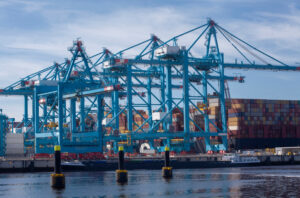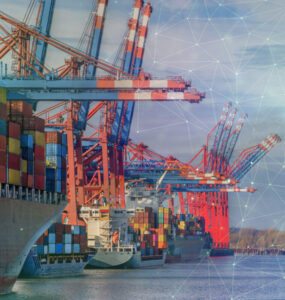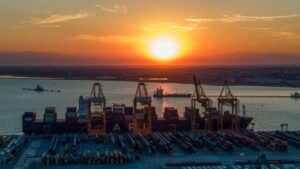The International Maritime Organization (IMO) has published a new set of toolkits for shippers and ports, to assess ways of reducing emissions across the maritime sector.
The Ship Emissions Toolkit and Port Emissions Toolkit have been developed under the Global Maritime Energy Efficiency Partnerships (GloMEEP) Project, the IMO working in collaboration with the Institute of Marine Engineering, Science and Technology (IMarEST) and the International Association of Ports and Harbours (IAPH).
Astrid Dispert, GloMEEP Technical Adviser, has stated that the new guides will help countries seeking to develop and strengthen regulatory frameworks related to the prevention of air pollution, as well as the reduction of greenhouse gas emissions from ships.
Simon Bennett overviews the IMO greenhouse gas strategy for a sustainable future in a recent Port Technology technical paper
Dispert said: “Both the ship and port emission toolkits provide practical guidance on assessing emissions so that a national emission reduction strategy for the maritime sector can be developed.
“The GloMEEP guides provide a wealth of information on assessment techniques and how to develop a national strategy, as well as links to further practical guidance.”
According to a statement, both toolkits have been developed through extensive testing and feedback, gathered from their practical use during national and regional training activities.
Just-in-time sailing equals fuel savings AND lower emissions – a financial AND environmental win. Study by Port of #Rotterdam supports IMO GloMeep project's conclusions https://t.co/JlmOlEoYaY. For more on #GloMeep check out https://t.co/l47zB5uQyJ #ClimateChange #environment pic.twitter.com/XEccy55QmS
— IMO (@IMOHQ) October 18, 2018
Both toolkits feature decision support tools for evaluating emissions reduction opportunities, including guidance for conducting a rapid assessment that generates both quantitative and qualitative information.
Dispert added: “Ports and shipping are intrinsically linked – as such, efforts to reduce maritime emissions need to extend beyond seagoing ships alone.
“IMO’s MARPOL Annex VI regulations on air pollution and energy efficiency are aimed at ships, but it is clear that for port emissions to be reduced, national authorities need to consider emissions from all sources, including cargo handling equipment, trucks – as well as domestic vessels.”









